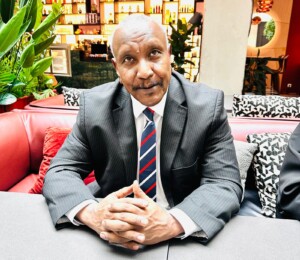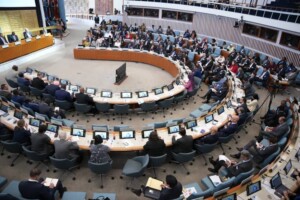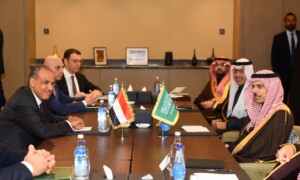Sudanese demo at UNHRC HQ in Geneva
Dozens of Sudanese demonstrated in front of the headquarters of the UN Human Rights Council (UNHRC) in Geneva yesterday condemning the Kalma cap massacre of last week, commemorating the martyrs of September 2013, and showing solidarity with condemned student Asim Omar.
Dozens of Sudanese demonstrated in front of the headquarters of the UN Human Rights Council (UNHRC) in Geneva yesterday condemning the Kalma cap massacre of last week, commemorating the martyrs of September 2013, and showing solidarity with condemned student Asim Omar.
The demonstration coincided with the 36th Regular Session of the UN Human Rights Council in Geneva, where a delegation led by Abdelbagi Jibril, president of the Darfur Relief and Documentation Centre, handed an open letter, signed by 30 human rights and civil society advocates, organisations, and activists, to the Director-General of the World Health Organisation (WHO) urging the organisation to urgently intervene and address the cholera epidemic in Sudan. The letter was. Demonstrators carried banners calling for the overthrow of the Al Bashir regime.

In his speech, Sudanese opposition leader Ali Mahmoud Hasanein chided the international community “for being lenient with the Sudanese government and supporting it in order to stop the illegal migration and justifying violations of human rights in Sudan”.
He called on all Sudanese to stand together to confront the government’s violations of human rights.
Iman Abdelbagi, representing the families of approximately 300 people who died when mass demonstrations over the lifting of fuel subsidies became deadly in September 2013, called for the need “to bring the murderers to justice” and accused the government of a cover-up.
Referring to the UN Independent Expert on the Situation of Human Rights in Sudan, Aristide Nononsi’s repeated recommendations to Sudan for “an impartial investigation and prosecution of those responsible for these incidents”, Abdelbagi and condemned the government’s failure to implement Nononsi’s recommendation to investigate the incidents in which security forces fired live ammunition to disperse protestors. Although three commissions of inquiry have been set up by the government to investigate the killings, their findings have not been made public. Out of at least 85 criminal complaints issued against members of the security forces, only one progressed to court with the conviction eventually being overturned.











 and then
and then